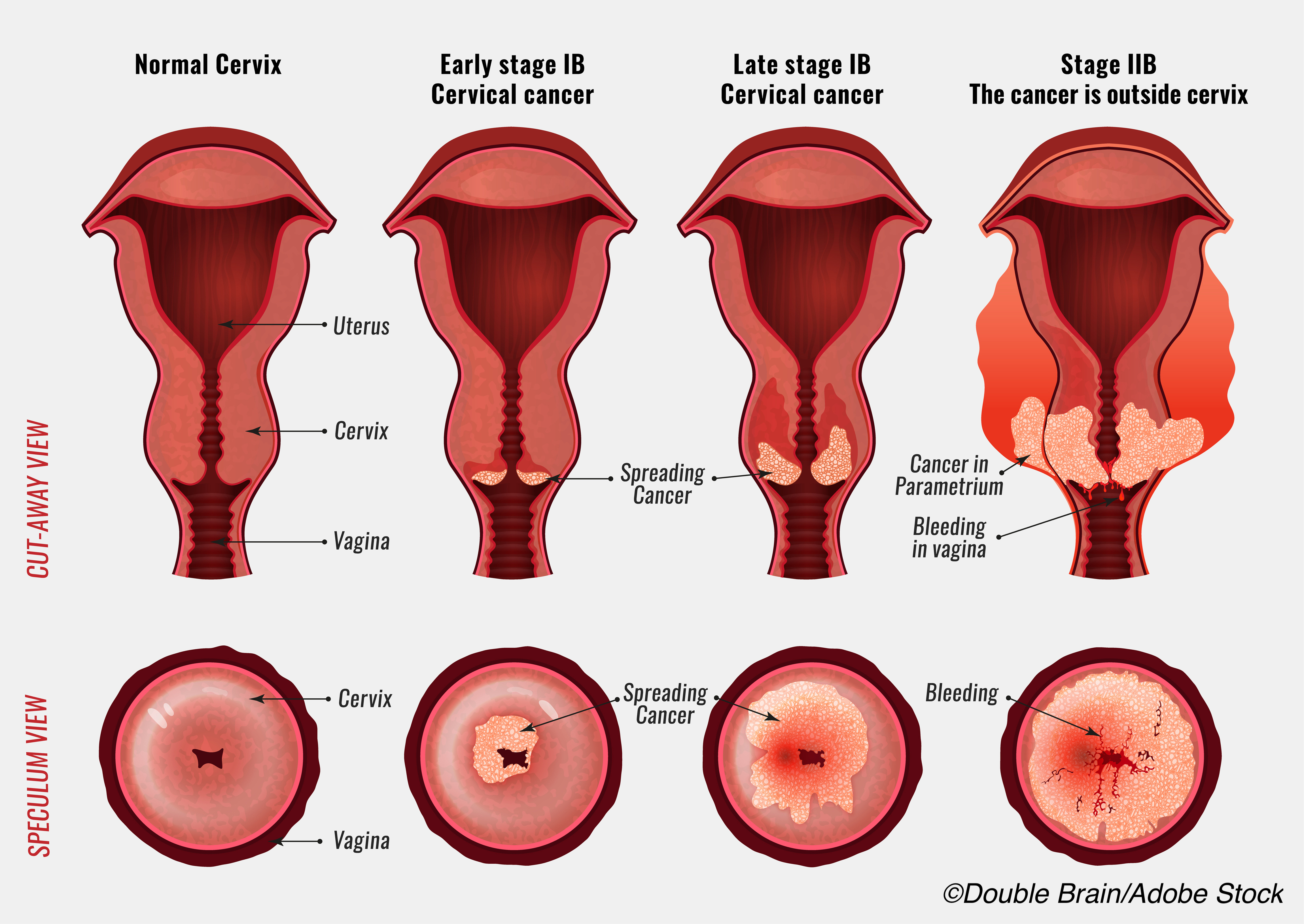
Topline results from a phase III trial of PD-1 inhibitor cemiplimab (Libtayo) monotherapy suggest that the drug significantly improved overall survival (OS) among patients with recurrent or metastatic cervical cancer who previously received chemotherapy.
These positive results prompted the drug’s manufacturers, Regenron Pharmaceuticals, Inc. and Sanofi, to announce an early end to the trial based on a “unanimous recommendation by the Independent Data Monitoring Committee (IDMC), and the data will form the basis of regulatory submissions in 2021,” the companies announced in a press release.
Cemiplimab recently made headlines following the drug’s FDA approval as first-line treatment of patients with locally advanced or metastatic non-small cell lung cancer with high PD-L1 expression — the PD-1 inhibitor is also FDA-approved to treat metastatic or locally advanced cutaneous squamous cell carcinoma among patients who are not candidates for surgery or radiation, and the drug currently holds accelerated approval for metastatic or locally advanced basal cell carcinoma, though this last is contingent upon verification of clinical benefit.
“[Cemiplimab] monotherapy is the first medicine to demonstrate an improvement in overall survival in women with recurrent or metastatic cervical cancer following progression on platinum-based chemotherapy in a Phase III trial,” said trial investigator Krishnansu S. Tewari, MD, Professor and Director of the Division of Gynecologic Oncology at the University of California, Irvine, in the company press release. “This landmark clinical achievement will bring hope to women with advanced cervical cancer who are often younger than patients with other cancers. This is reflected in this trial where the average age was 51.”
The phase III trial pitted cemiplimab (350 mg every three weeks) against investigator-choice chemotherapy (pemetrexed, vinorelbine, topotecan, irinotecan, or gemcitabine) in a cohort of 608 women (median age: 51 years) with either squamous cell carcinoma or adenocarcinoma — trial participants were randomized 1:1 to cemiplimab monotherapy or chemotherapy, and the primary endpoint was OS.
The study authors found that cemiplimab led to a 31% reduced risk of death overall compared to chemotherapy (OS 12.0 months for cemiplimab vs 8.5 months for chemotherapy; hazard ratio (HR) 0.69, 95% CI 0.56-0.84 [P<0.001]). Broken down by cancer type, cemiplimab led to a 27% reduced risk of death for those with squamous cell carcinoma (OS 11.1 months for cemiplimab [n=239] vs 8.8 months for chemotherapy [n=238]; HR 0.73, 95% CI 0.58-0.91 [P=0.003]) and a 44% reduced risk of death for adenocarcinoma (OS 13.3 months for cemiplimab [n=65] vs 7.0 months for chemotherapy [n=66]; HR 0.56, 95% CI 0.36-0.85 [P<0.005, not adjusted for multiplicity]).
“Per a protocol-specified interim analysis, the IDMC reviewed OS data when approximately 85% of events had occurred among patients with squamous cell carcinoma,” the manufacturers wrote. “Based on the highly significant effect on OS among these patients, the IDMC recommended stopping the trial. Detailed results will be presented at an upcoming medical meeting. The use of Libtayo in cervical cancer is investigational and has not been fully reviewed by any regulatory authority.”
Adverse events (AEs) were observed in 88% of cemiplimab patients and 91% of chemotherapy patients; serious AEs occurred in 30% of cemiplimab patients and 27% of chemotherapy patients.
“The 5 most common AEs were anemia (25% [cemiplimab], 45% chemotherapy), nausea (18% [cemiplimab], 33% chemotherapy), fatigue (17% [cemiplimab], 16% chemotherapy), vomiting (16% [cemiplimab], 23% chemotherapy) and constipation (15% [cemiplimab], 20% chemotherapy),” the companies wrote. “Other AEs that occurred more often in the [cemiplimab] group and in at least 10% of patients were fatigue (17% [cemiplimab], 16% chemotherapy), urinary tract infections (12% [cemiplimab], 9% chemotherapy), back pain (11% [cemiplimab], 9% chemotherapy) and arthralgia (10% [cemiplimab], 3% chemotherapy). Discontinuations due to AEs occurred in 8% of [cemiplimab] patients and 5% of chemotherapy patients.”
John McKenna, Associate Editor, BreakingMED™
Cat ID: 120
Topic ID: 78,120,730,120,191,192,925


